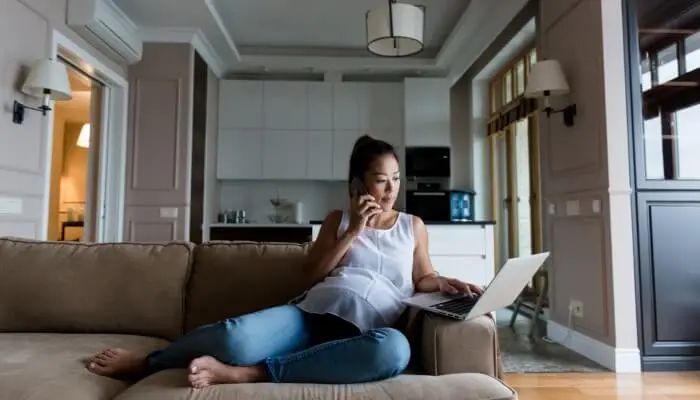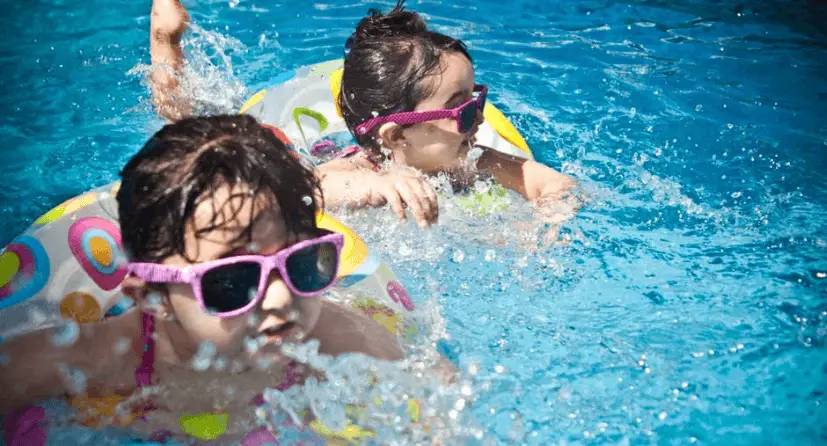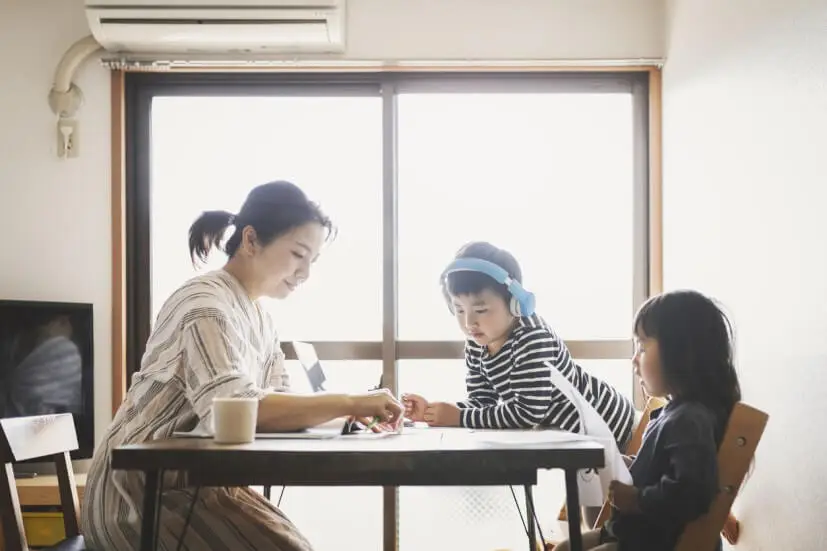How to Choose & Register for Primary School in Singapore (2024)

Little ones grow up so fast. Before you know it, your child will be 6 and you’ll need to decide which primary school he or she will be going to.
Singapore primary schools boast high teaching standards, facilities, and a variety of learning programmes that cultivate students’ interests in the arts, sports, or sciences.
Despite this, primary school registration in Singapore can feel like a competitive sport, with parents doing things like moving house or committing hours to volunteer service to increase their child’s chances of getting into their desired primary school.
How to Choose a Primary School in Singapore
The good news is that there are other ways to decide which primary school to send your child to. Here are some pragmatic considerations to help you make your choice.
Location
Something to think about is how close your desired primary school is. A shorter distance from the school to your home means lower transport costs and shorter travel time, giving your child more time and energy to do what he or she enjoys. It will also mean less stress for you, as a shorter commute lessens the stress of you being stuck in traffic on the way to work. Lastly, when your child gets old enough to go to school alone, you may feel more at ease knowing that he or she doesn't have to travel so far alone.
Close proximity to the school of your choice also gives you a slight advantage in the admission process, especially if you live within 1-2 km from the school. Find out more about the schools near your home here.
Secondary school affiliation
Choosing a primary school affiliated with a secondary school can relieve some of the pressure and anxiety from the Primary School Leaving Exam (PSLE).
Generally speaking, students have a better chance at continuing their education at the affiliated secondary school if they meet the school's minimum PSLE results, and indicate the school as their first choice. Of course, having priority does not guarantee admission. Like anything, admission to a secondary school is subject to your PSLE score and the availability of vacancies.
Don’t worry if the primary schools near you don’t have secondary school affiliations. As of 2022, 20% vacancies in each course at secondary schools are now reserved for students without affiliation priority. So even if your child’s primary school has no school affiliations, he or she still has a chance to attend their secondary school of choice.
Single-sex versus coeducation
Some parents have preferences about sending their children to single-sex or mixed/coeducational schools. There are plenty of options for both types of primary schools in Singapore. If you have several children of the same or mixed genders, you may find one type of school more advantageous than the other.
Children with a sibling already studying at the primary school get priority and guaranteed placement when it’s time for them to enter Primary One. That’s because logistics-wise, it's easier for you to send your children to school and fetch them home. Your little ones may also feel more at ease, knowing that his or her sibling is close. This is especially so on the first day of school, which can be quite daunting for your younger child.
Inclusion
Around 80% of students with special needs are able to attend mainstream schools in Singapore. For children with moderate to severe special education needs, there are special education schools (SPED) that offer customised curriculums and intensive support. Even if your child has no disabilities, it’s worth seeing if your shortlisted primary schools have facilities and programmes for children with special education needs. This shows that the school values inclusion and has made thoughtful plans to embed differently-abled children into mainstream society.
Your child might thrive in a school that goes the extra mile to create a positive learning environment for all. Attending classes with differently-abled students will also teach your child to get along with those who are different from them, an important life skill that can be transformative when learned at a young age.
Religion
For some families, it’s important for their children to attend schools that teach religion and offer values-based education. In these schools, students may be exposed to religious services and songs, and students of the affiliated religion may be offered the chance to attend religious classes or services. These are not compulsory for all students; non-religious families can have their children opt out of religious activities.
If you’re considering a religiously affiliated school, it’s good to make sure you’re aware of and comfortable with what your child will be exposed to from the start.
Single-session versus double-session schools
You might have heard that a handful of primary schools still offer “double sessions”, while the government is moving to shift all primary schools towards “single sessions”. It’s worth considering what type of session the school offers, as your child’s caregiver needs to be available before and after school hours.
Single-session schools start class in the morning and end by early afternoon, so that students can participate in a wider range of academic and non-academic activities within the campus.
Meanwhile, a double-session school caters to two different groups of students at different times of the day. Morning session classes start from early in the day till early afternoon, while afternoon-session classes start after lunch, and end in the evening.
Your child’s talents and interests
Every school has its own areas of specialisation for co-curricular activities (CCAs), whether its sports, performing arts, or sciences. If a school offers opportunities for your child to excel in something outside academic areas, that's something to pay attention to. This will help your child develop innate talents and skills beyond the classroom, for a truly well-rounded education.
You can start by looking for schools with excellence awards in areas that your child is interested in. Do note that some CCAs will incur extra expenditure (albeit subsidised) for training, costumes, equipment, instruments, or school trips.
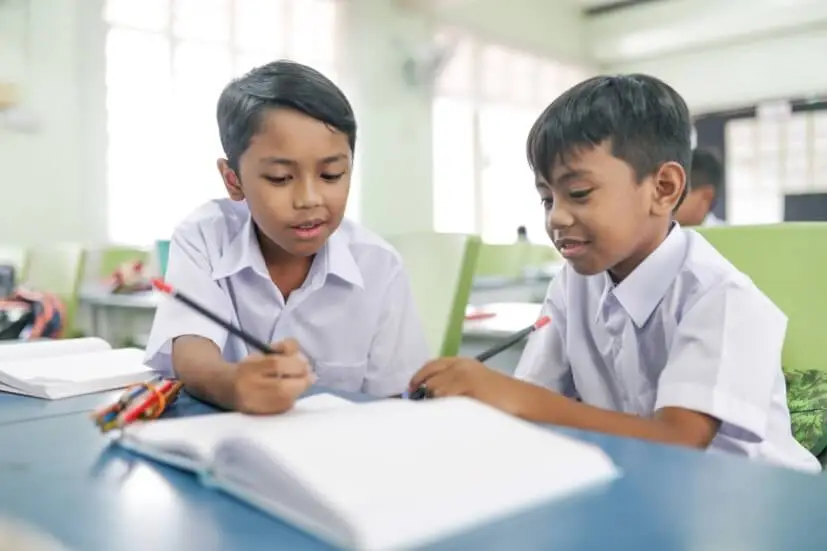
Singapore Primary School Registration 2024
After you’ve discussed and made your primary school of choice, it’s time to prepare your documents and get ready for primary school registration.
When can you start registering your child? Registrations for 2025 start from Tuesday, 1 July. Here’s a quick overview of the primary school registration phases from the MOE for the year 2025 as reference. It’s important to know what phase to register your child in, because you can only register your child in one school per phase. Multiple applications for the same school at different phases will not be accepted.
The Ministry of Education has introduced some changes to the P1 registration framework to help children who don’t have existing connections to schools be able to get a place in a school near their homes. This will enable them to pursue other interests as well as increase convenience for their families. Read the following changes and check whether they apply to your child:
- Increase in the number of reserved places for Phase 2C
- Reserved places have increased from 20 to 40 in Phase 2C. Phase 2B continues to have 20 reserved places, making it a total of 60.
- At the end of Phase 2A, one-third of the remaining places will be allocated to Phase 2B, while two thirds to Phase 2C.
- Single Phase 2A
- Phases 2A(1) and 2A(2) have been combined to form Phase 2A. This will enable registrants that used to fall under Phase 2A(2) to obtain a vacancy even with the increased number of reserved places in Phase 2C, which could have otherwise resulted in vacancies filling up during Phase 2A(1).
- Updated method of calculating Home-School Distance (HSD)
- Once the number of registrants crosses the number of vacancies in a school, computerised balloting will be conducted, and priority would be given based on the citizenship of the child and their HSD category.
- HSD will now be calculated based on the School Land Boundary (SLB). This is the shortest distance from a point on the boundary around the school (in place of calculating from one single point for the school, as used earlier) to the child’s registered address. Learn how changes in the HSD calculation affects you.
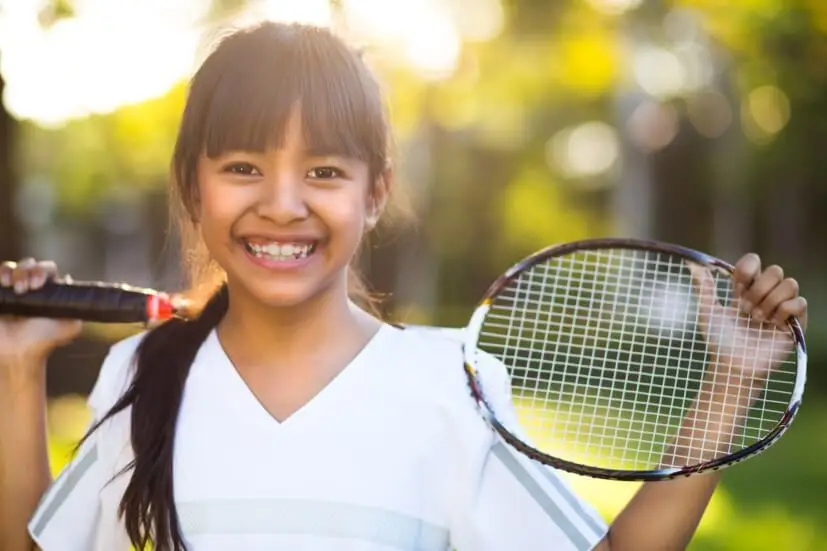
How to register your child for primary school in 2024
Before anything else, prepare the following:
- Child's full name
- Child's birth certificate number
- Child's date of birth
- Address for registration
- Email address
- Contact details
- Your child’s immunisation records(to be emailed to the school when requested or before the reporting day)
The table above also lists down additional documents needed for phases 2A and 2B.
Primary school registration will continue to be online to minimise contact among the public and to ensure safe distancing measures. You are required to have a Singpass with 2-Factor Authentication before you register online. Register for Singpass 2FA here.
For Phase 1 registrations, you need to submit an online form with registration details. The school where your older child is studying will give you details on how to register his or her younger sibling during this phase. Please contact the school if you have not received the instructions.
For all other phases, your need to complete the registration online through:
- An online form (Phases 2A and 2B)
- The Primary One Internet System (P1-IS) (Phases 2C or 2C Supplementary)
You’ll receive an SMS about the result of your primary school application at noon of the phase’s results announcement day. Good luck!
Prepare for primary school costs with a savings plan
Fortunately, Singaporean parents don’t have to worry about expensive school fees. Primary school is free for Singapore citizens, while Permanent Residents pay $255/month in 2023.
However, extracurricular activities, enrichment classes, tuition, and other out-of-classroom educational experiences have costs that need to be paid out-of-pocket. Start preparing for these with an insurance savings plan like Gro Saver Flex Pro, a customisable insurance savings plan that allows you to choose your premium and policy terms, so you can meet the financial needs of your child's education.
It is also good to prepare for financial costs that might come from injuries your child may sustain during extracurricular activities, especially if they join a sports team. Personal accident insurance covers medical expenses for injuries due to accidents, and a plan like PA Assurance gives children a 40% discount on premiums if at least one parent is insured under the same policy.
As your child embarks on this new chapter in life, find out more on how you can support his/her education.
This article is meant purely for informational purposes and does not constitute an offer, recommendation, solicitation or advise to buy or sell any product(s). It should not be relied upon as financial advice. The precise terms, conditions and exclusions of any Income Insurance products mentioned are specified in their respective policy contracts. Please seek independent financial advice before making any decision.
These policies are protected under the Policy Owners’ Protection Scheme which is administered by the Singapore Deposit Insurance Corporation (SDIC). Coverage for your policy is automatic and no further action is required from you. For more information on the types of benefits that are covered under the scheme as well as the limits of coverage, where applicable, please contact Income Insurance or visit the GIA/LIA or SDIC websites (www.gia.org.sg or www.lia.org.sg or www.sdic.org.sg).
This advertisement has not been reviewed by the Monetary Authority of Singapore.
Related Articles
